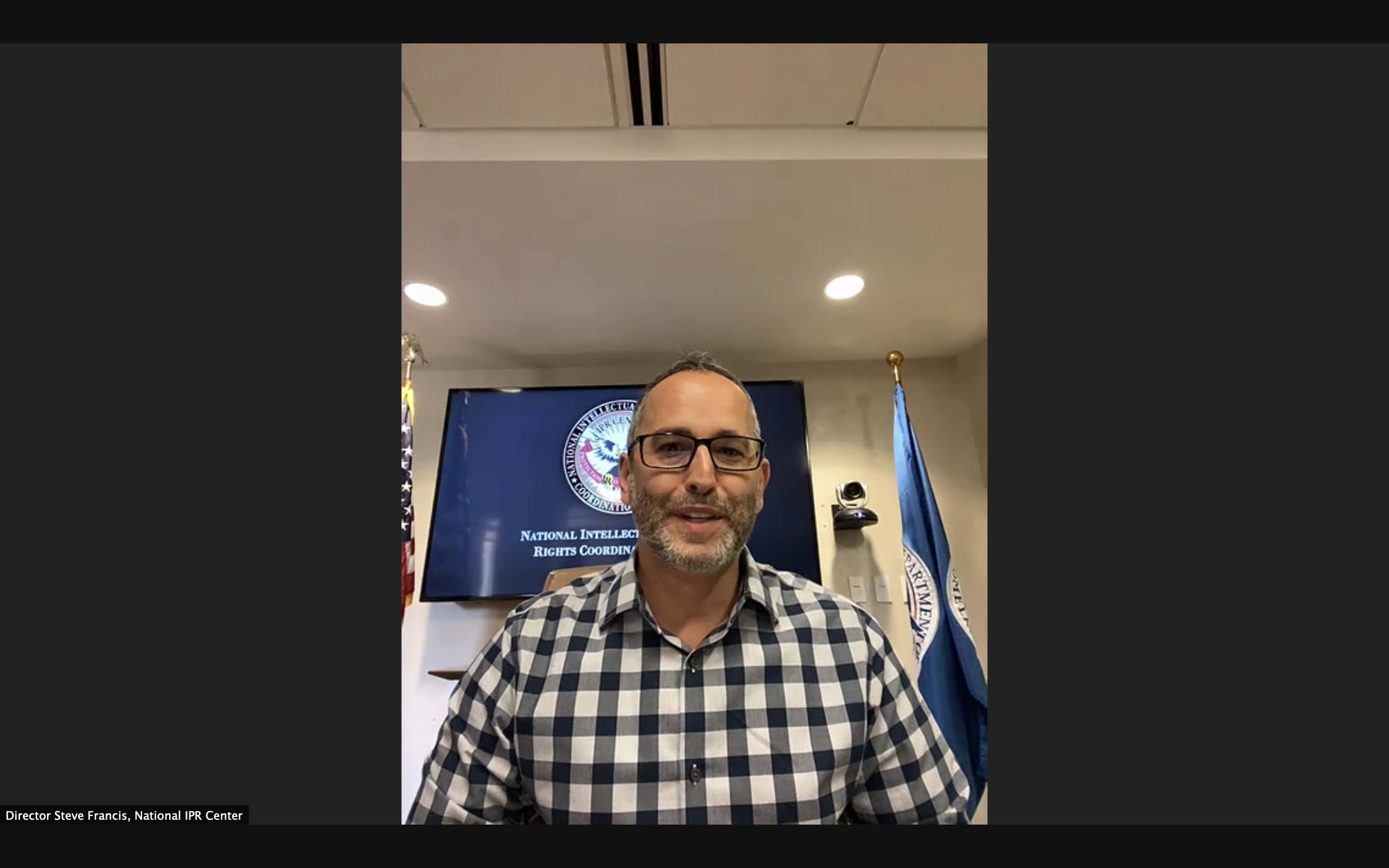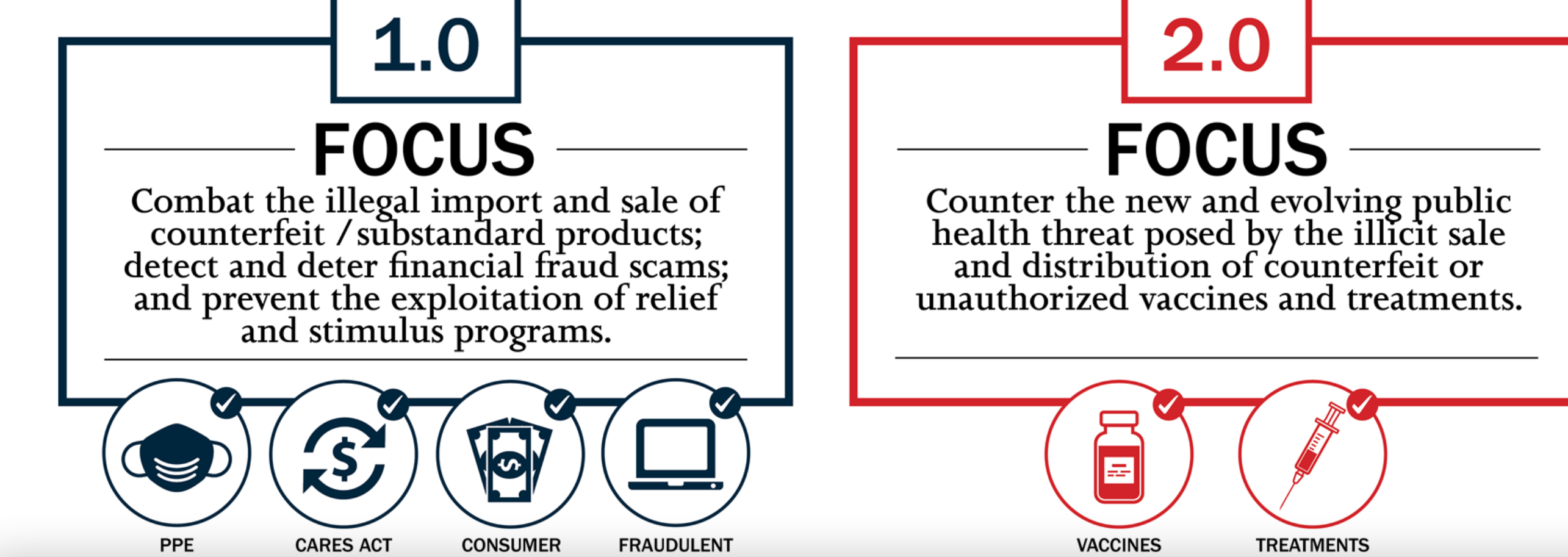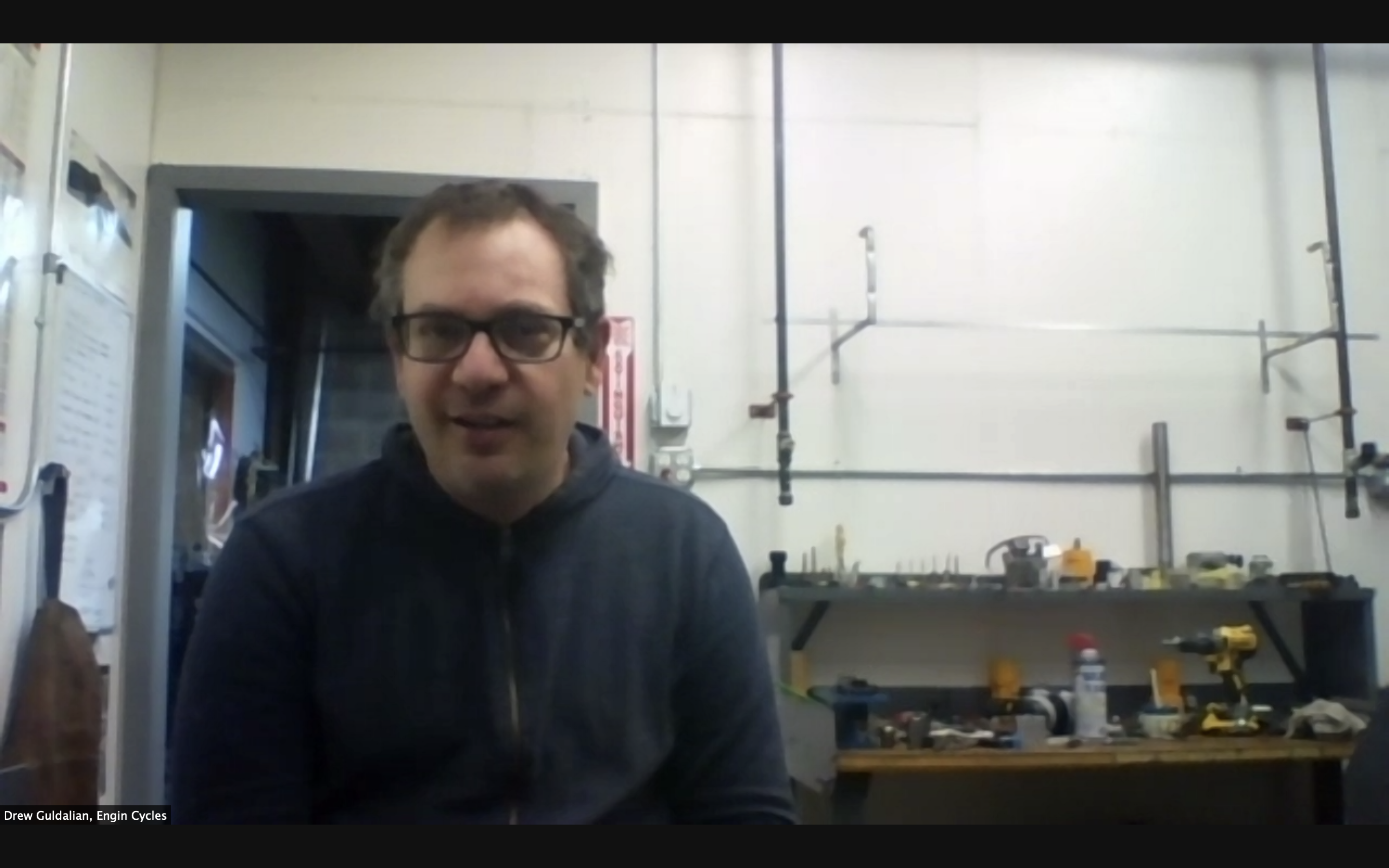
Steve Francis, IPR Center
The U.S. Chamber of Commerce’s Global Innovation Policy Center (GIPC) held a webinar on Tuesday, April 6, as part of its Innovation Ecosystem series, titled “Worth Protecting,” which included Steve Francis, Assistant Director, HSI Global Trade Investigations Division Director, National IPR Coordination Center, as one of the panelists. Francis explained that public-private partnerships have been key to combating the spike in illicit activity that has occurred during the COVID-19 pandemic. 85%-90% of illicit activity on seizures over the last five years has originated from Hong Kong and China, said Francis.
The National IPR Coordination Center has existed for over a decade but was only codified into law in 2016. It is one arm of the Global Trade Investigations Division – and more broadly, Homeland Security Investigations (HSI) – and “stands at the forefront of the United States government’s response to combatting global intellectual property (IP) theft and enforcement of its international trade laws.” Francis joined the IPR Center two years ago and told webinar attendees that the Center prioritizes three areas:
- National Security, as it relates to microelectronics that go into Department of Defense supply chains;
- Economic security, as it relates to the hundreds of billions of dollars that are lost to the U.S. economy each and every year [as a result of IP theft]; and
- Protecting the health and safety of the public.
Francis said that, during the pandemic, the Center has launched thousands of criminal investigations and seized or disrupted hundreds of millions of counterfeit efforts, working with partners across the globe. In April 2020, HSI introduced “Operation Stolen Promise” to “prevent and investigate illegal criminal activity surrounding the pandemic, strengthen global supply-chain security and protect the American public.” The operation was a global strategy to bring together the IPR Center, the cyber division and the financial and international operations of the U.S. government to combat the fraud related to COVID, which has continually evolved.

Source: Ice.gov
What began with “a huge influx of counterfeit Personal Protective Equipment (PPE), antiviral and pharmaceutical products in April 2020, has now morphed into knockoffs of Food and Drug Administration (FDA)-approved treatments and vaccines, often promoted via spoof websites meant to steal personal identifying information, said Francis. The websites ask users to fill out surveys about their experience with the vaccines. “They’re essentially identical websites [to the real ones], you wouldn’t know the difference,” said Francis. “The first time we looked at [one], we thought the fake website was actually the real one because it had better pictures.”
The IPR Center is now working on Public Service Announcements with state, local and international partners to share information about such scams. Private sector partnerships have been integral to this operation, said Francis. For example, in the last three months alone, over 20 million counterfeit 3M N95 respirators have been seized, and 3M has worked alongside Francis’ team to point out the fakes. Seventy-five criminal investigations have been launched as a result. “These were products that were purchased and intended for first responders, ready to go into hospitals,” said Francis. “I’m amazed that we’re still talking about it today, but it’s still at the forefront of what we’re doing.”
Operation Stolen Promise 2.0 was launched later last year, and Francis said he hopes there won’t be an Operation Stolen Promise 3.0.

Drew Guldalian, Engin Cycles
Tuesday’s panel was moderated by Bob Pearson of The Next Practice Group, and also included Stacey MacGrath Gifford of IBM Research’s Future of Climate Group, and entrepreneur Drew Guldalian, founder of Engin Cycles.
Interestingly, in response to a comment made by Gifford about the expense of getting patents, Guldalian revealed that he doesn’t have “a single patent” for his innovative bikes because he can’t afford to get one. “I really roll the dice on a lot of my products because I know that they’re relatively easy to replicate,” he said, instead opting to innovate faster than the marketplace.
The GIPC’s next webinar will take place on April 13 at 1:00PM.
This article was updated on April 9 to clarify that 85%-90% of illicit activity came from China and Hing Kong over the last five years, rather than during the pandemic.

![[IPWatchdog Logo]](https://ipwatchdog.com/wp-content/themes/IPWatchdog%20-%202023/assets/images/temp/logo-small@2x.png)

![[Advertisement]](https://ipwatchdog.com/wp-content/uploads/2024/04/Patent-Litigation-Masters-2024-sidebar-700x500-1.jpg)

![[Advertisement]](https://ipwatchdog.com/wp-content/uploads/2021/12/WEBINAR-336-x-280-px.png)
![[Advertisement]](https://ipwatchdog.com/wp-content/uploads/2021/12/2021-Patent-Practice-on-Demand-recorded-Feb-2021-336-x-280.jpg)
![[Advertisement]](https://ipwatchdog.com/wp-content/uploads/2021/12/Ad-4-The-Invent-Patent-System™.png)






Join the Discussion
2 comments so far.
Eileen McDermott
April 9, 2021 10:54 amIt looks like the 85% figure is for all counterfeits over a longer period, though he doesn’t cite the source here either – there was not a Q&A:
“Francis said that 85% of all counterfeit goods over the past five years originated from China.”
https://abcnews.go.com/Politics/50-nations-counterfeit-covid-19-goods-coming-china/story?id=72028154
TFCFM
April 9, 2021 10:35 am…the spike in illicit activity that has occurred during the COVID-19 pandemic, 85%-90% of which has originated from Hong Kong and China.
As a bit of an aside (sorry), if one wanted to cite something concrete to back up the “85-90%” assertion, is there a reliable source the one could cite? (No offense intended if this was intended as a “gut feeling” estimate.)